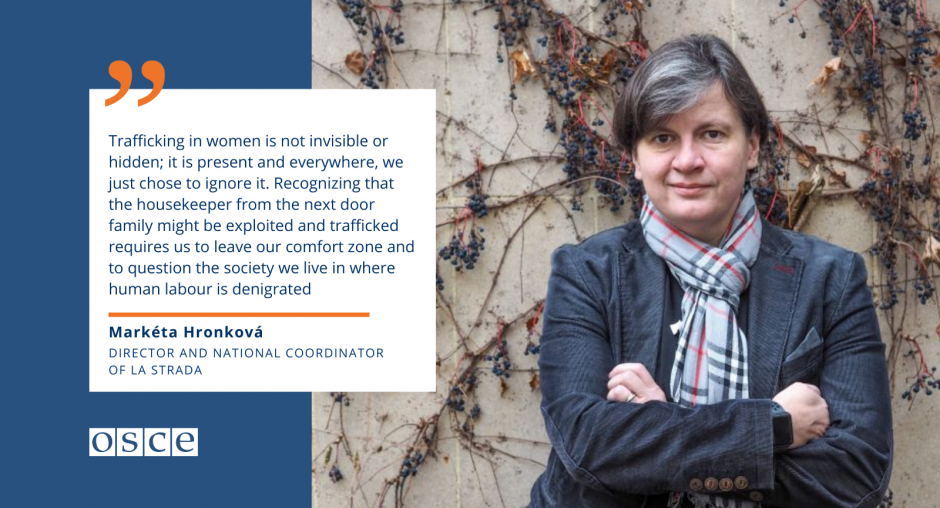OSCE launches breakthrough study on gender and human trafficking

VIENNA, 26 May 2021- To better understand and frame the gender aspects of human trafficking, the Office of the Special Representative and Co-ordinator for Combating Trafficking in Human Beings launched today a breakthrough study: Applying gender-sensitive approaches in combating trafficking in human beings.
More than 200 people connected to join the discussion online.
"Boys, girls, men, and women are vulnerable to trafficking in human beings for distinct reasons and are affected in different ways. Adopting a gender-sensitive approach in combating trafficking is, therefore, crucial to ensure that no victim is left behind, regardless of their gender or the form of exploitation they have endured," said Valiant Richey, OSCE Special Representative and Co-ordinator for Combating Trafficking in Human Beings.
The research is a first-of-its-kind, taking a comprehensive and holistic approach. It is based on findings of a multi-method research design, which included surveys, interviews, and expert group meetings with survivors, practitioners, service providers, and law enforcement. It explores promising practices and gaps in applying gender-sensitive approaches in trafficking prevention, protection, and prosecution.
The Special Representative of the OSCE Chairpersonship on Gender, Liliana Palihovici, said: “Neglected women's rights create the ideal premises for human trafficking, especially trafficking in women and girls.”
Participants agreed that the OSCE study is a critical lens into gender and will make sure that no victims are left behind. It was noted that the trafficking in women is in fact not invisible or hidden, but sometimes ignored. Participants also discussed male victims of human trafficking and tailored responses to their specific needs.
Yasmin Vafa, the Co-founder and Executive Director of the American NGO, Rights4girls, pointed out that all over the world, women and girls of colour are disproportionately harmed by sex trafficking. "We cannot ignore the impact of colonization and the history of racialized gendered violence that contributes to the trafficking of Black and Indigenous people."
Among other findings, the research highlights that the responses to trafficking in human beings are still concealed by gender stereotyping. On the other hand, failure to understand the full spectrum of gender aspects of human trafficking leads to exacerbating stereotypes, hindering protection and assistance to all victims.
The entire report can be found here.
